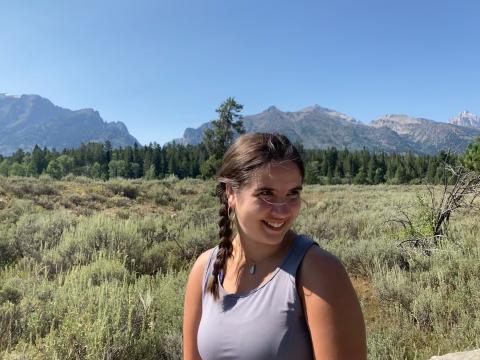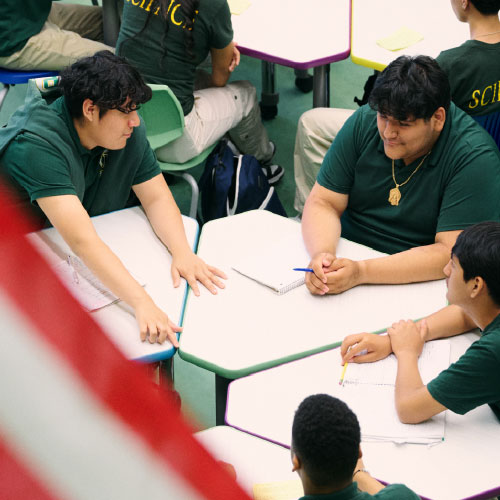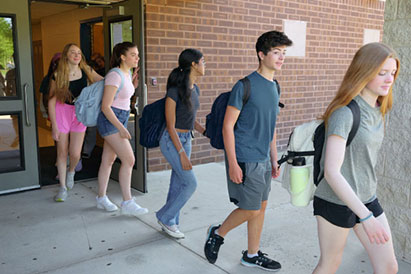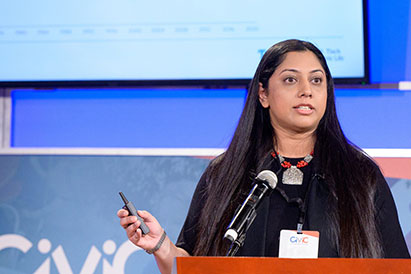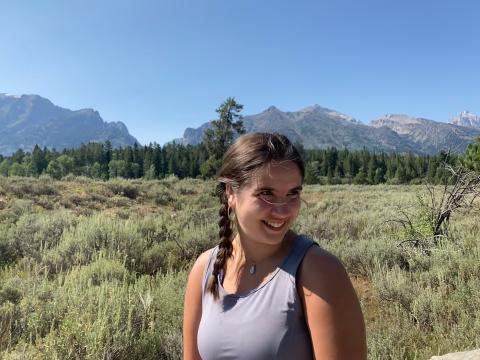
In mid-November, when I was in first grade, my mother visited my classroom to share knowledge on Indigenous people, and specifically, our Narragansett tribe. As one of the few Native students in school, my mom’s presentation was essential for adding Indigenous voices to the curriculum. Aside from this experience, Native voices were never incorporated into my learning, especially not in history or civics classes.
Instead, a limited narrative of my own family was presented, and I knew nothing other than to accept this. The omission of Native voices from my K-12 education silenced my own voice. Without seeing myself, or my family, I learned to compartmentalize my identity while in the classroom instead of letting it fuel my curiosity and insight.
Since completing my K-12 education, I have discovered spaces that genuinely welcome and celebrate voices that expand the narrative of our nation’s history. I joined iCivics last summer as a part of the initiative, Educating for American Democracy (EAD). The EAD initiative provides a Roadmap for high-quality history and civics education that prioritizes inquiry and multiple perspectives. The current debates about what content can and cannot be included in history classrooms distract us from what students deserve: the opportunity to grapple with hard questions, to sort through evidence to determine whose voices and stories are amplified and whose are silenced, and determine what is signal and what is simply noise. The EAD Roadmap leans into these complexities through its emphasis on inquiry and on viewpoint pluralism. The Design Challenges highlight these complexities and acknowledge that our history is not cut and dry, leading to inevitable tensions in the classroom. Nonetheless, these complexities are what drive learning and create engaged community members.
As an EAD intern, I curated resources for the Educator Resource library, including perspectives from Indigenous nations to broaden the scope of history and civic education to include the myriad voices, perspectives, and peoples of these United States. This aligned with the EAD Roadmap, particularly around “Theme 2: Our Changing Landscapes,” where students are asked to “analyze Indigenous understandings of land stewardship, economic activity, property, and prosperity” and “how have different experiences of belonging shaped the range of conceptions of ‘the people’ we find in the contemporary U.S.?” There is an underappreciated and complex relationship between sovereign nations and federal and state governments that all students must understand. Students must learn both the hard history of our country, but also, they must learn to celebrate and appreciate the ever-present cultural and linguistic resiliency of Indigenous peoples and the continual push for Indigenous rights, for Indigenous futures, and for our rightful place in “America’s Plural Yet Shared Story.”
Being able to contribute to the EAD initiative has been very rewarding. This internship has built my understanding of broader dynamics in education and curriculum building while also incorporating my perspective and lived experiences to strengthen the project’s goals of equity and accessibility. History is a powerful tool and teaching students to grapple with complex histories expands their ability to engage as thoughtful citizens. Uplifting voices in the curriculum simultaneously uplifts voices in the classroom and empowers all students in their potential.
Written by Emma Rial
Emma is a senior at Amherst College, studying sociology. She works on the curation team for EAD and enjoys hiking, cooking, and being home with family in Rhode Island.
